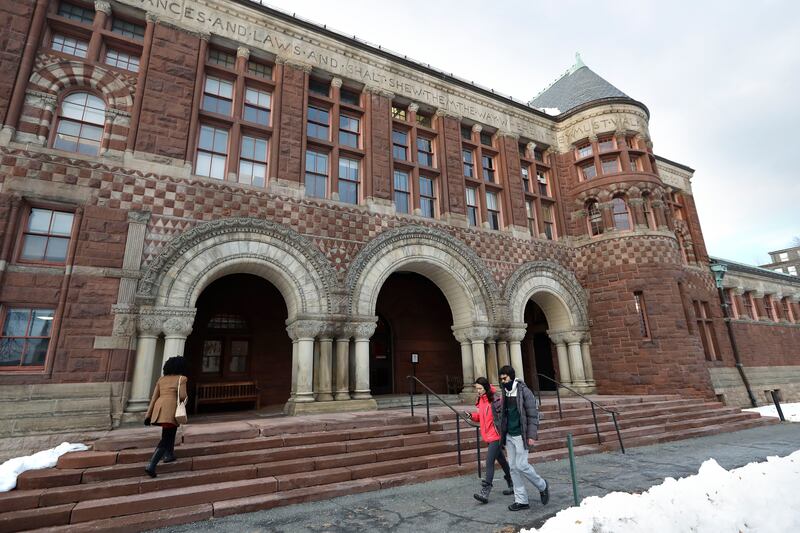Two of the nation’s top law schools, Yale and Harvard universities, have announced they are withdrawing from U.S. News and World Report’s annual rankings of the nation’s best law schools.
Both schools announced the decisions on their websites, with Yale Law, top-rated for three decades, calling the rankings “profoundly flawed.”
Heather K. Gerken, dean of Yale Law, said the rankings “disincentivize programs that support public interest careers, champion need-based aid and welcome working-class students into the profession. We have reached a point where the rankings process is undermining the core commitments of the legal profession. As a result, we will no longer participate.”
Harvard Law School Dean John Manning’s statement said Harvard has decided to withdraw from the rankings “because it has become impossible to reconcile our principles and commitments with the methodology and incentives the U.S. News rankings reflect.”
In the most recent U.S. News rankings, Yale Law ranked first and Harvard Law School tied for fourth with Columbia University. Stanford and the University of Chicago were ranked second and third.
The latest rankings placed Brigham Young University’s J. Reuben Clark Law School 23rd nationally, while the University of Utah’s S.J. Quinney College of Law was ranked 37th, up from 43rd a year ago and 17th among public institutions.
According to a New York Times report, U.S. News said it stood by its “mission” to “ensure that law schools are held accountable for the education they will provide.”
The Times reported, “After Harvard’s announcement, the tone became more conciliatory. ‘We agree that test scores don’t tell the full story of an applicant, and law schools make their own decisions on the applicant pool based on the mission of the school,’ U.S. News said in an email.”
Gerken said U.S. News has refused to address repeated calls from law school deans to modify its metrics.
“It’s entirely understandable that many schools feel compelled to adhere to a commercial magazine’s preferences, as the rankings are taken seriously by applicants, employers, and alumni. But rankings are useful only when they follow sound methodology and confine their metrics to what the data can reasonably capture — factors I’ve described in my own research on election administration,” Gerken said in her statement.
Manning’s statement said Harvard, among other schools, have raised concerns with U.S. News over several years.
“In particular, we have raised concerns about aspects of the U.S. News ranking methodology ... that work against law schools’ commitments to enhancing the socioeconomic diversity of our classes; to allocating financial aid to students based on need; and, through loan repayment and public interest fellowships, to supporting graduates interested in careers serving the public interest.”
Manning said U.S. News’ process “does not advance the best ideals of legal education or the profession we serve, and it contradicts the deeply held commitments of Harvard Law School.”



